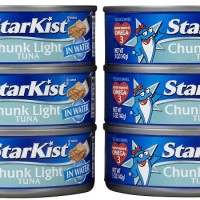
The local long line fleet is getting support from StarKist in obtaining prestigious MSC fisheries certification.
StarKist is working with members of the Tautai-O Samoa Longline & Fishing Association and other independent U.S. vessel owners to successfully complete the fishery assessment and achieve the prestigious MSC Fisheries Certification based on the fleet’s sustainable fishing practice.
Cary Gann, Director of Procurement, StarKist Co. said, “StarKist has always had a strong commitment to sustainability and this was an excellent opportunity to demonstrate that commitment in a very direct way.
“We are putting our money where our mouth is and at the same time, StarKist can support our local Pago-based U.S. fishing fleet which has been struggling financially in recent years.
“As with many of the U.S. fisheries, these vessels fishing in the U.S. EEZ of American Samoa are operating under some of the strictest fisheries management regulations in the world.
“For many years, this has placed them at a major disadvantage to foreign flagged fishing fleets, and the result has been a steady decline in the number of U.S. vessels operating out of American Samoa.”
“With MSC Fisheries Certification, these vessels and their owners can finally be recognized and rewarded for their sustainable fishing practices.”
The fisheries assessment, which includes a series of questionnaires, in-person interviews, site visits and peer-reviews, started this month and will run until August 2017.
The company is covering the entire cost of the assessment on behalf of the local fishermen who would otherwise find it nearly impossible to finance the certification process.
A statement from StarKist says the comapny has been struggling to maintain an economically viable operation in American Samoa due to a growing range of issues, including a reliable supply of quality fish sufficient enough to keep the plant in operation.
Despite the challenges, StarKist continues to make investments to keep the Pago Pago plant and supply chain competitive on a global basis.
Those investments include helping the local fishermen in their efforts to improve sustainability ratings that are increasingly on the minds of the American consumer.
According to Gann, StarKist hopes that this certification, if achieved, can ultimately help to revitalize and perhaps even grow the local longline fleet, which is an important source of supply for the StarKist Samoa cannery.
The company is also encouraging other fisheries to work towards MSC certification so there is adequate supply to support the small but growing market for MSC-certified seafood products in the U.S.
Currently, most of the MSC certified tuna ends up in the European Union market.
StarKist wants to introduce new tuna products with the MSC blue logo into the U.S. market under both the StarKist and Blue Harbor Fish Co. brands.
StarKist hopes its investment in the local fleet will help them to gain an advantage in a growing market.
The MSC is an international non-profit organization with a vision for the world’s oceans to be teeming with life and seafood supplies that are safeguarded for this and future generations.
The blue MSC label on a seafood product means that it comes from a wild-catch fishery, which has been independently certified to the MSC’s science-based standard for environmentally sustainable fishing and is fully traceable to a sustainable source.




